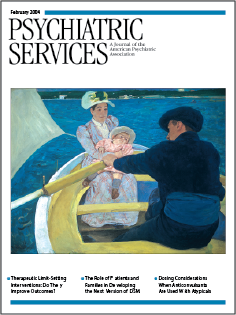Women at Midlife: Life Experiences and Implications for the Helping Professions
The authors of Women at Midlife: Life Experiences and Implications for the Helping Professions provide a comprehensive review of up-to-date research about women at midlife. They are thorough in this task, covering relationships, caregiving, single status, work and finances, physical health, menopause and sexuality, emotional issues, personality and identity, and psychological well-being. Issues that are relevant to both heterosexual and lesbian women are explored.
Women at Midlife opens with a consideration of the many possible ways of defining "midlife." The authors clarify linear and nonlinear models as two ways of considering this period of life. They point out the importance of awareness of the research, which they proceed to detail throughout the text, as well as the necessity of seeing each woman as an individual who may not represent the findings from available studies.
In each chapter the authors highlight the issues they see as most relevant and rely heavily on research results to support their comments. They address the ways in which current studies conflict with historical ideas about women at midlife. They also refute commonly held ideas. An example of this is seen in chapter 7, which is about menopause and sexuality. The authors cite a study claiming that despite popular belief, the frequency of hot flashes does not increase after menopause. The authors also describe the debate between minimalists and maximalists. The former group sees menopause as a natural process, whereas the latter group sees it biomedically, as a disease. Support from recent research for both views is provided.
Current issues of hormone treatment are discussed as well. The chapter on this topic also reports on research that has had conflicting findings about sexuality during and after menopause. This chapter is representative of the topic areas and how they are addressed in Women at Midlife. The authors show a preference for quantitative research. The sections addressing implications for practice lean toward behavioral and cognitive-behavioral techniques, although others are suggested, including feminist practices and group therapy. For the most part, the authors do not draw strong conclusions about the significance of the research, but, rather, present it for the readers to assess for themselves. This stance seems appropriate in light of the conflicting research that exists on each topic. There are no obvious answers on how to address these issues, but this text is an up-to-date reference for clinicians who wish to be informed about issues that their female clients may be facing in midlife.
This book is laid out in textbook format. Each chapter opens with a brief description of the topic to be addressed. Next there are questions to consider during reading. After most of the material is presented there are summary points, implications for practice, a vignette, questions about the vignette, and an extensive reference list. The format and the wealth of research reviewed offer a reference source for clinicians who want to better understand the issues clients are raising and to be more informed about options.
Ms. Ruben is affiliated with the Ozark Guidance Center in Bentonville, Arkansas, and is a doctoral candidate at Smith College School for Social Work in Northampton, Massachusetts.



